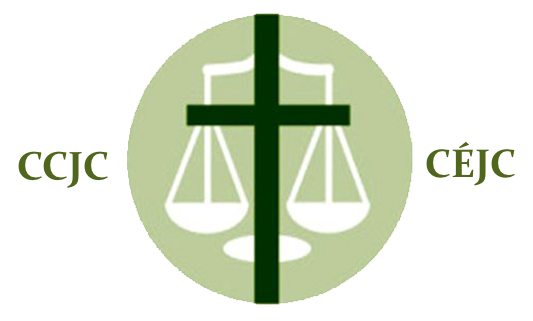History
1970
Starting in August 1972, 11 denominational partners came together to create the Council for the Study of the Responsibility and Action of the Churches in the field of Justice and Corrections in Canada – Conseil Pour L’Etude De La Responsabilite Et De L’Action Des Eglises Dans Le Domaine De La Justice Et De La Crimnologie au Canada. Those partners were The Anglican Church in Canada, The Baptist Federation of Canada, Canadian Conference of Catholic Bishops, The Christian Reformed Church in North America, The Disciples of Christ, The Lutheran Church in Canada, Mennonite Church Canada, The Presbyterian Church in Canada, The Religious Society of Friends, The Salvation Army Canada and The United Church of Canada.
During the 1970s we widely distributed the ‘Alternatives Kit: A Programme of Community Involvement’, to over 14,000 congregations. This kit promoted community education and involvement, primarily designed to increase awareness and understanding about some problems with our criminal justice system and possible solutions. CCJC played a major role in the campaign against the death penalty in Canada.
1980
In the 1980’s, CCJC played a leadership role, along with the National Associations Active in Criminal Justice, in hosting a major conference about reconciliation as a principle of justice and producing an educational video titled “Reconciliation: Experiencing Justice”. We provided communities with resources on different issues, including publications such as ‘Dialogue on Crime and Punishment’ and ‘Dialogue on Crime Prevention, Focus on Youth’, the kits “Family Violence in a Patriarchal Culture” and “Fire in the Rose”.
In April 1983, the Council for the Study of the Responsibility and Action of the Churches in the field of Justice and Corrections in Canada – Conseil Pour L’Etude De La Responsabilite Et De L’Action Des Eglises Dans Le Domaine De La Justice Et De La Crimnologie au Canada was formally renamed The Church Council on Justice and Corrections – Le Conseil Des Eglises Pour La Justice Et La Criminologie.
1990
During the 1990’s, we continued to contribute to policy making by participating in consultations on various criminal justice issues. It was during this decade that CCJC implemented the pilot Collaborative Justice Program, which is now recognized for pioneering restorative responses to serious crime. We also published “Personal Empowerment for Stronger Relationships” and “Satisfying Justice”.
2000
During the early 2000’s we continued to fulfill our mission and to search for creative ways to reach out to the public, encouraging community involvement in matters of public safety. We created the position “Community Chair of Justice” to foster a new public conversation about what justice is. Staffed by Lorraine Berzins, this initiative included emphasizing art as a means to communicate with the public. We sponsored the production of the theatrical play “Crime on Broadway”, created the “Justice Storytelling Quilt” and initiated the project “Arts’ Tools For Justice”. In addition, we sponsored various forums and continued to participate in consultations, as well as reforms to the Youth Criminal Justice Act.
In 2008 CCJC became involved in a five year National Demonstration Project for Circles of Support and Accountability (CoSA), seeking to promote this program that is based on restorative justice principles. The project was funded by the National Crime Prevention Centre (NCPC), and the resulting evaluation provided a valuable addition to the growing body of international research on CoSA programs. The full report is now available here.
2010
During this decade, both the Victim Impact Project (created ~ 2014) and The Empathy Project (created ~ 2018) were created. A prison chaplain, Kate Johnson, worked with a prisoner to help him understand the harm his actions had caused a victim. This was the first time someone had this type of conversation with him and it blew his mind! It was also the first time he heard about Restorative Justice. Using “You Have the Power”, a US-based Victim Impact curriculum, with a CCJC built “Canadian Addendum”, approximately 20 people, many of them prison chaplains, were trained in this resource and brought it to those incarcerated men who wanted to learn about Victim Impact.
The Empathy Project is a curriculum created for incarcerated women. The curriculum is based around 13 chapters; the first introduces Community Justice/Restorative Justice, the second chapter discusses Cultural Barriers and the third chapter talks about Media impact. The rest of the chapters focus on issues that might have caused a woman to be incarcerated, such as Property Crime and Theft; Substance Abuse; Domestic Violence; Homicide, etc. There is a chapter on Forgiveness and Making Amends. The thirteenth chapter is a Celebration chapter, focusing on the success of the women participants. The Empathy Project was piloted at Grand Valley Institution in 2019.
Please refer to our Annual Reports on our website for detailed information on current projects and initiatives.
